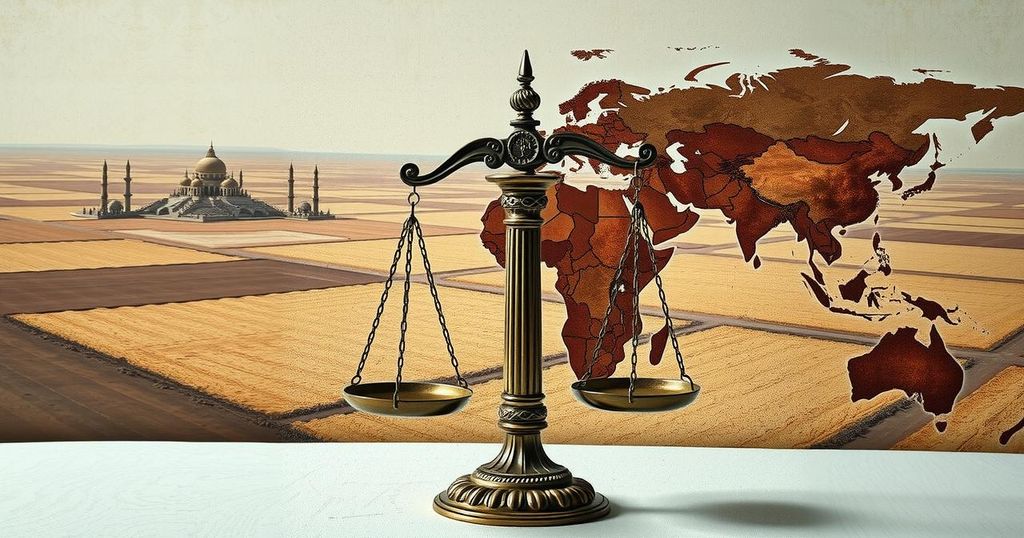President Trump has ordered a freeze on U.S. aid to South Africa, citing human rights violations linked to land reform policies that affect White farmers. The executive order also includes support for Afrikaners facing discrimination. South Africa has challenged Trump’s narrative, emphasizing its historical context.
On Friday, President Donald Trump signed an executive order freezing assistance to South Africa following a controversial land law permitting the government to confiscate farmland from ethnic minorities, particularly White farmers, without compensation. Trump criticized these policies, labeling them as human rights violations and asserting that the United States would withdraw support until such actions cease. In addition, the order mandates support for Afrikaners seeking refuge due to alleged discrimination in South Africa.
This decision arises amid ongoing land reform in South Africa, which stems from a historical context of racial injustice during the apartheid era. While the South African government asserts that land redistribution is necessary for correcting past wrongs, critics, including Trump, argue that current policies are discriminatory against White farmers. The broader implications of this executive order reflect tensions in U.S.-South African relations over domestic policies and international stances, particularly regarding Israel and Gaza.
In conclusion, President Trump’s executive order highlights significant geopolitical tensions stemming from South Africa’s land reform policies and its stance on international issues like Israel. The potential implications for U.S. foreign aid and the complex historical context of land ownership in South Africa remain focal points of discussion as the two nations navigate their relationship going forward.
Original Source: www.cnn.com






